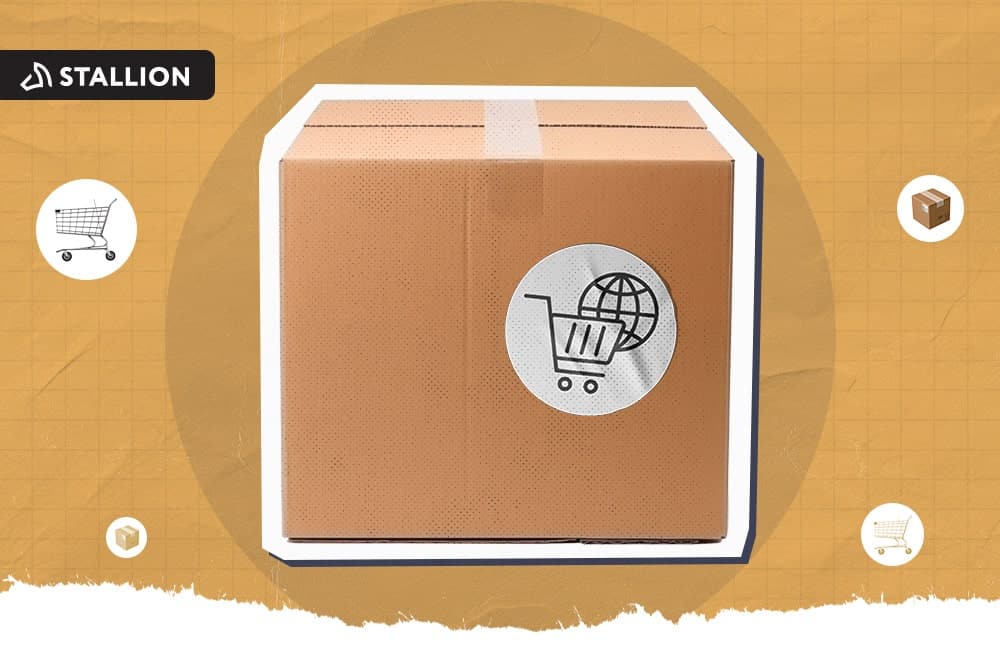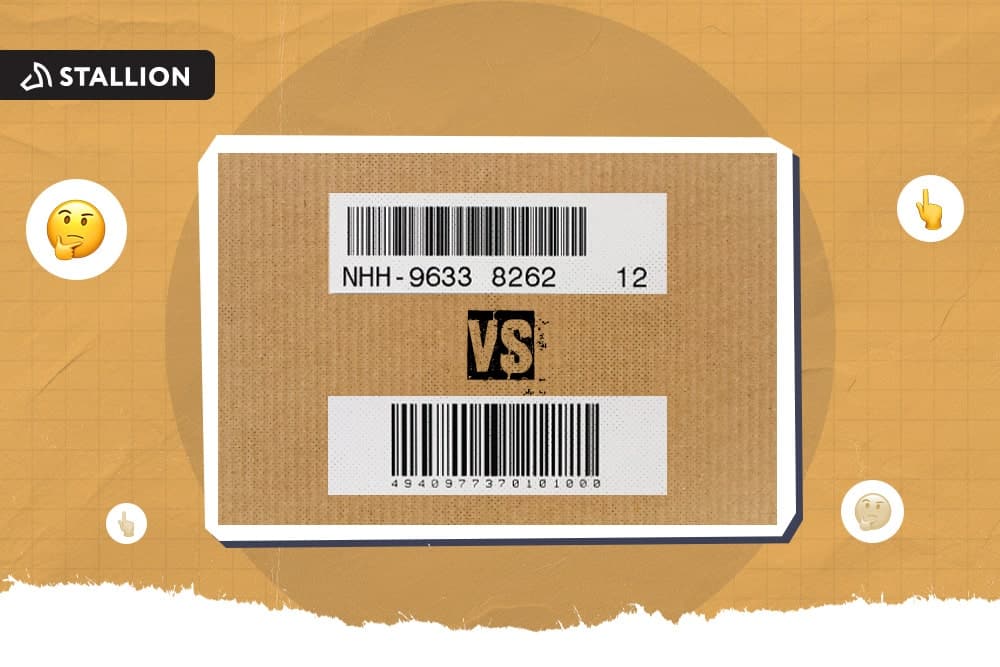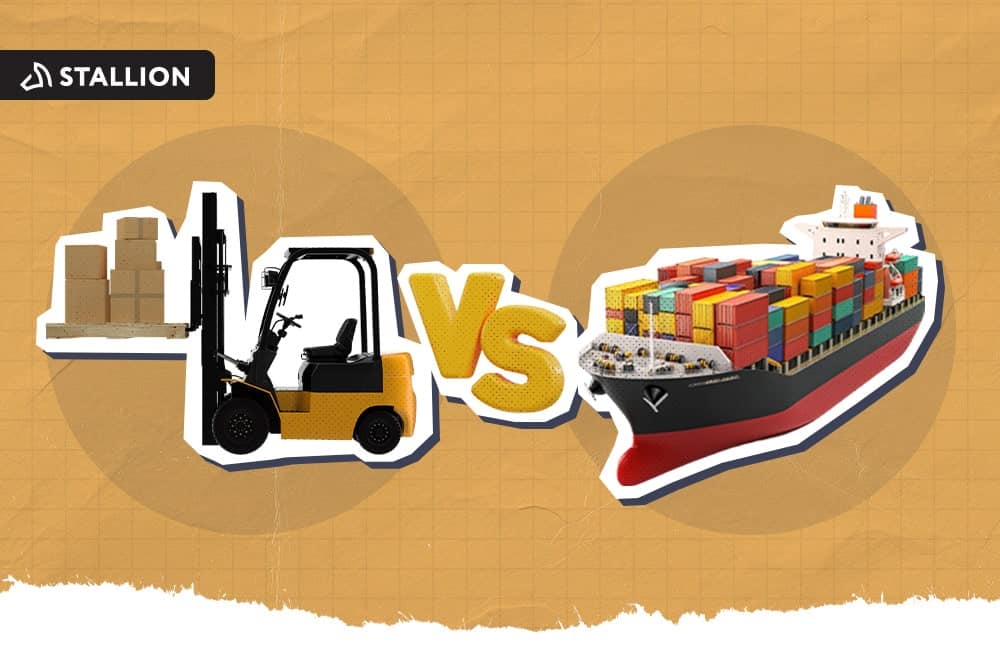
For centuries, the Canadian shipping industry has thrived because it prioritized handling and trading goods with customers efficiently. According to Statista, Canada Post delivered a total of 320 million shipment parcels in 2019— a significant increase from 296 million in 2018, and 242 million in 2017. This data is mostly attributed to small business shipping Canada services that deliver goods within and outside the country every day. Both the private and public shipping sectors know that prioritizing small businesses can ultimately contribute to the economy’s growth, and so small business shipping is at the forefront of Canada’s shipping identity.
If you are an entrepreneur with your own small business in Canada, you still might be unfamiliar with the documents you need to fill out and prepare when you decide to have your products shipped. Some entrepreneurs skip this step altogether and fail to understand why these documents are required in the first place. As a result, their shipments get held or rejected at the border by Canadian customs agencies. Some even pay unnecessary fees for penalties.
It’s safe to say that wasting valuable time and money on negligence is not the best business decision. This article provides an overview of all documents you need to prepare for your shipments to be delivered to customers. Streamlining this process is crucial to help you integrate a method suitable for the shipping and mailing service.
For starters, the following essential documents are needed by Canadian customs to clear your products for shipping successfully:
The B13A application form is a document required by Canadian customs to be shipped to other countries for all export products. Canadian customs requires a B13A application for shipments that are valued above CAD 2,000 (except those to be sent to the US, Puerto Rico, or the US Virgin Islands), or for regulated, prohibited, and controlled goods regardless of the product value.
If you are required to file a B13A for your products, you need a Canadian Automated Export Declaration and submit your B13A at least two days before transport. You also need to prepare at least three copies of your B13A form when you have your shipments verified. Failing to comply with this essential customs requirement, or even providing missing/inaccurate information, will result in an Administrative Monetary System Penalty (AMPS). As an entrepreneur, it’s best to prepare the B13A ahead of time to ensure you don’t have to pay for these extra fees.
The Canadian Customs Invoice (CCI), sometimes called the Commercial Invoice, is an individual invoice document required by Canadian customs before shipping a product. Essentially, the CCI is a more detailed version of the B13A form that can be filled out by an importer, export, or customs agent. When you fail to accomplish or provide inaccurate information on your CCI, you risk having your products stuck at the border for some time.
Small business shipping Canada services typically require the following documents from entrepreneurs:
It is likewise vital to note that not all goods require a CCI. For instance, shipping non-restricted consumption goods to the US, Puerto Rico, or the US Virgin Islands do not need any export declaration forms, so a CCI is not required. To avoid any problems at the border, determine your product's export eligibility through the Canada Border Services Agency’s official website.
A Bill of Lading (BOL) is a legal file made between a product seller and the consignee. Canadian customs commonly use it for the following reasons:
As mentioned, a BOL includes necessary information that serves as supporting evidence for the B13A Application form or the CCI. For instance, the sellers are required to provide the product quantity, net and gross weight, and pick-up date when they accomplish a BOL. Like the first two documents, though, BOLs aren’t required for all shipments. To prevent any mishaps, entrepreneurs must research Canada’s customs guidelines before preparing all documents.
The Cargo Control Document (CCD), also known as a Shipping Manifest or Highway Form A8A, is a customs document that contains crucial information about a product. It primarily has a unique shipment code set by Canadian customs to help them identify the origins of the carrier and shipments before they are delivered to a designated location. The 4-digit bar code, called a Cargo Control Number (CCN), is individually provided by customs authorities based on the following available data:
Before even being allowed to ship products from Canada to other countries, the local government requires all businesses to apply for a proper export permit. According to the Export and Import Permits Act (EIPA), any entrepreneur can apply for this license alone or through a customs broker. Through a customs broker, sellers are required to file an export permit application for each shipment. You need to have an EIPA file number (to obtain this document, you need to register for a separate claim with the DFAIT) before paying a CAD 14.00 fee. An export permit will be granted within 30 days.
If you decide to apply alone, you need to mail or fax your documents directly to the DFAIT. However, only applications with fixed shipment amounts will be accepted, and they should be paid through a check.
Small business shipping Canada services are undoubtedly accompanied by an insane amount of paperwork that entrepreneurs have to accomplish before being allowed to ship products outside Canada. It’s a tedious, time-consuming, and stressful process, but it’s an efficient method to prevent prohibited products from entering/exiting Canadian territory. By completing all shipping documents ahead of time, you will be able to ship products without any mishaps and allow your business to thrive in the long-term.
If you’re interested in hiring a team of highly skilled shipping professionals or you’re simply looking for sustainable eCommerce shipping solutions, we at Stallion Express provide quality shipping services in Canada for a fair price. Book an appointment today!



Can our fellow Torontonians relate?
-
#smallbusiness #business #entrepreneur #socialmedia #shipping #ecommerce #canadianecommerce #shopify #poshmark #b2b #saas #etsy #ebay #canada #canadiansmallbusiness #shoplocalcanada #entrepreneur
#toronto

Here’s your quick hassle free shipping from 🇨🇦 to 🇺🇸 as a business owner!
-
Any questions?! Leave them 👇🏻 and save this video so you don’t forget!
-
#smallbusiness #business #entrepreneur #socialmedia #shipping #ecommerce #canadianecommerce #shopify #poshmark #b2b #saas #etsy #ebay #canada #canadiansmallbusiness #shoplocalcanada #entrepreneur

Meet @drinkbenny a 🇨🇦 female founded energy drink brand! Instead of focusing on their products, they’re taking a unique approach by hosting in person events in different Canadian cities to offer an experience for their community 🧡
-
What are your thoughts on in person events? 💭
-
#smallbusiness #business #entrepreneur #socialmedia #shipping #ecommerce #canadianecommerce #shopify #poshmark #b2b #saas #etsy #ebay #canada #canadiansmallbusiness #shoplocalcanada #entrepreneur

Do you know the difference between DDU and DDP when shipping internationally 🌏 ?
-
Questions? Leave them below! 👇🏻
-
#smallbusiness #business #entrepreneur #socialmedia #shipping #ecommerce #canadianecommerce #shopify #poshmark #b2b #saas #etsy #ebay #canada #canadiansmallbusiness #shoplocalcanada #entrepreneur

Here’s a quick hack to save time from choosing multiple postage options
↪️ Turn on the lowest postage rate automation to save you time!
-
Questions? Leave them below! 👇🏻
-
#smallbusiness #business #entrepreneur #socialmedia #shipping #ecommerce #canadianecommerce #shopify #poshmark #b2b #saas #etsy #ebay #canada #canadiansmallbusiness #shoplocalcanada #entrepreneur
